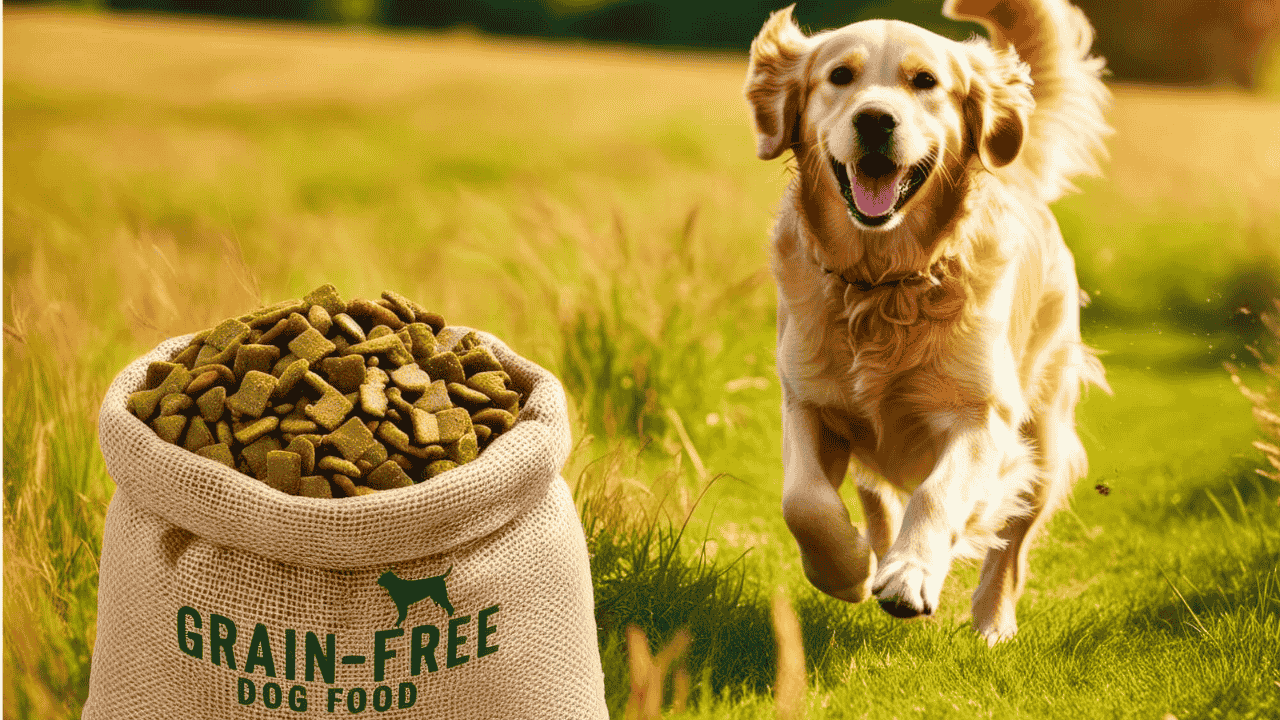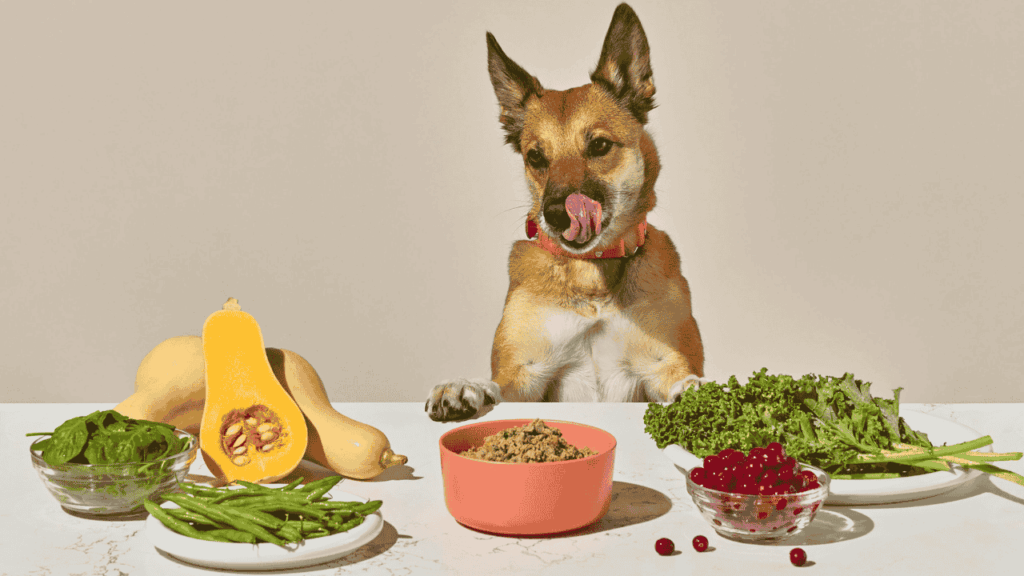Feeding our dogs well has become more complex than ever. Among the many diet trends for dogs, the grain-free option has captured a lot of attention. In the United States, many veterinarians are recommending grain-free diets for certain dogs—though not for all. Understanding why this recommendation is made, when it applies, and how to implement it safely is key to making the right choice for your pet.
What is a Grain-Free Dog Diet?
A grain-free dog diet is one that removes traditional cereal grains such as wheat, rice, corn, and barley from the ingredient list. Instead of grains, these diets often use alternative carbohydrate sources like peas, lentils, potatoes, or other legumes. Some owners believe that by eliminating grains, they are offering their dogs a more “natural” diet or one that avoids fillers. The term “grain-free” itself has become a marketing badge in many pet food companies’ packaging. Research shows, however, that domesticated dogs are not strictly carnivores and have adapted over thousands of years to digest starches and grains. The Washington Post+1 On the other hand, the concept of grain-free has grown because of perceived benefits such as alleviating food sensitivities or improving digestion.
When Do U.S. Veterinarians Recommend Grain-Free Diets?
Veterinarians in the U.S. typically recommend grain-free diets under specific conditions, rather than as a universal solution. One such condition is when a dog has a confirmed grain allergy or intolerance. Although true grain allergies in dogs are very rare, in those rare cases, a grain-free diet may provide relief for symptoms like itching, ear infections, digestive upset, or skin problems. PetMD+1 Another common scenario is when a dog has gastrointestinal sensitivity or impaired digestion of certain grains — in which case switching to a diet without grains may help. Lastly, some veterinarians may suggest grain-free formulas if a dog is on a therapeutic diet designed for a specific health issue, under veterinary supervision.
How Are Grain-Free Diets Thought to Help Some Dogs?
The reasoning behind recommending grain-free diets for particular dogs includes several factors. First, removing grains might eliminate one possible, albeit rare, trigger for food-related skin or digestive issues. While most food allergies in dogs involve proteins (like beef, chicken, or dairy) rather than grains, eliminating grains can sometimes simplify the diet and isolate the trigger. Houndsy+1 Second, from a palatability standpoint, many grain-free diets incorporate novel proteins or carbohydrate alternatives, which may be more appealing to some dogs who are picky eaters or have lost appetite. Third, for dogs with diagnosed sensitivities, switching to grain-free may support improved digestion, fewer flare-ups, and better overall comfort. Importantly, any benefit comes when the diet is carefully formulated, balanced, and monitored by a veterinarian.
What Are the Risks That Veterinarians Consider Before Recommending Grain-Free Diets?
Although grain-free diets have potential benefits, U.S. veterinarians are cautious because of notable risks and uncertainties. One of the most prominent concerns is the possible link between certain grain-free diets and a heart condition known as dilated cardiomyopathy (DCM) in dogs. The U.S. Food & Drug Administration (FDA) investigated reports of dogs developing DCM despite lacking the usual breed predisposition, and in many of those cases the dogs were eating grain-free diets rich in legumes and potatoes. petwellclinic.com+2HappyPet-Everyday+2 Furthermore, grain-free diets may lead to nutritional imbalances if the removed grains are not properly replaced with suitable alternatives. Grain ingredients can provide fiber, vitamins, and minerals. Some grain-free formulas instead focus heavily on starches from peas or potatoes and may inadvertently reduce nutrient bioavailability. PetMD+1 Because of these risks, veterinarians emphasize formulation quality, feeding trials, and close monitoring rather than simply removing grains based on trend.
When Should You Consult a Veterinarian About Switching to Grain-Free?
Before switching your dog to a grain-free diet, it’s wise to consult a veterinarian. You should do so especially if your dog shows signs of food sensitivity (chronic itching, ear infections, digestive upset), or if your dog has a condition that requires a specially formulated diet. Even if you believe grains may be an issue, a vet can help determine whether the problem is truly related to grains or something else (such as proteins or additives). The vet can also guide you on choosing a high-quality grain-free formula, ensure it meets your dog’s nutritional needs, and advise on how to transition feeds safely. Additionally, if your dog belongs to a breed at risk for DCM or has underlying cardiac issues, your veterinarian may caution against certain grain-free diets or monitor heart health more closely.
How Should You Choose a Safe and Effective Grain-Free Diet?
When you’ve determined with your veterinarian that a grain-free diet is appropriate, selecting the right product is key. Look for diets that clearly state they are complete and balanced according to standards (for example those set by Association of American Feed Control Officials– AAFCO). Check the ingredient list for real meat or fish as the first ingredient, and ensure that carbohydrate alternatives are of high quality and not overly reliant on peas, lentils, or potatoes as sole fillers. While grain-free does not automatically mean better, a well-formulated one can work. Also, transition your dog gradually over 7–10 days (mixing increasing amounts of the new food with the old) to avoid digestive upset. Monitor your dog’s weight, coat quality, energy levels, stool consistency and overall health. Keep an eye on any signs of lethargy, coughing, exercise intolerance or change in appetite — these might warrant veterinary re-check for heart or other issues.
What Should You Keep in Mind Long-Term?
Even after switching, regular monitoring remains important. Just because a diet is grain-free does not guarantee it meets all nutrient needs. Many vets stress that a diet’s overall formulation, ingredient quality and feeding trial verification matter more than whether it contains grain. The Washington Post+1 Periodic check-ups with your veterinarian, including discussions about diet, weight, and possible heart health (especially for large breeds) are a good investment. Finally, keep in mind that trends in dog food come and go — what matters most is matching the diet to your dog’s individual health needs rather than simply following a buzzword.







